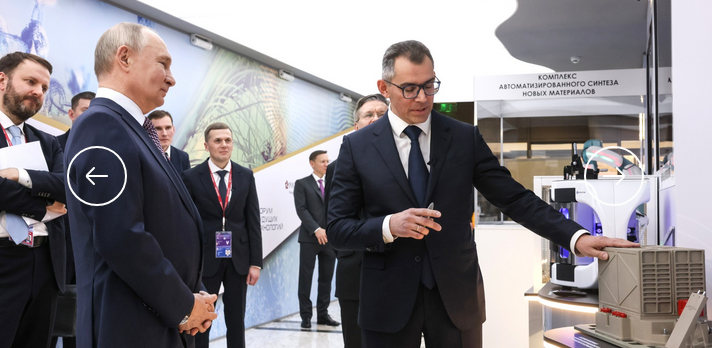By Alexander Oakes
Copyright antiwar

War is ugly and it leaves in its brutal wake not just death and destruction, but also a seemingly endless number of people whose minds and bodies are permanently damaged. Yet, despite these grim aspects of war, the unsavory affair is still quite common within our species and its existence has come to seem, at this point, like an inevitability. One of the most recent examples of this is the bloody war between Russia and Ukraine. The West, and the US in particular, has had a major part to play in the escalation of this war, which is one that could, potentially, spark World War III.
Dr. James Fearon is a political scientist whose work has sought to figure out what causes nations to go to war, and specifically, what conditions lead political leaders to prefer war instead of ex-ante (prewar) bargains with competing states. In essence, his conclusions are that there are three main reasons that a leader would choose war over diplomacy.
These include one or both nations misinterpreting the strength of the other, a lack of mutual trust, and the existence of incompatible desires, such as one nation wanting to engage in behavior that the other deems to be a human rights violation.
Now, a major factor as to whether or not these conditions have been met depends upon how a leader perceives the international landscape. With this in mind, since Russia is the explicit aggressor in the Russia/Ukraine conflict what is known about how their leader, Vladimir Putin, sees the current landscape?
Dr. Stephen Benedict Dyson and Dr. Matthew J. Parent, in their academic article entitled The operational code approach to profiling political leaders: understanding Vladimir Putin (2017) used a research method known as content analytics to break down Putin’s personality structure so that they could determine his psychological patterns, and his underlying behavioral motivations.
The results of this study were that “Putin holds broadly mainstream beliefs about international politics, albeit qualified by hyper-aggressiveness toward terrorism and a startling preoccupation with political control. His approach is that of an opportunist rather than a strategist.”
Put plainly, Putin may not be the madman we have been led to believe he is but rather is a businessman who is motivated first and foremost by an inherent need for stability. But when Putin feels control slipping, be it due to pressure from outside forces or internally from his own citizens, Putin is more than likely going to resort back to what he knows best, his thuggish nature.
So how does the US factor into this equation?
One of the main drivers of the Russia/Ukraine conflict can be traced back to the US reneging on the 1990 “Iron Clad Guarantees” in which then-Secretary of State James Baker promised Soviet President Mikhail Gorbachev that the US would not expand NATO “one inch farther” to the east of Germany.
Despite making such bold commitments, though, since 1990 three countries [(Estonia, Latvia (2004), and Finland (2023)] that share borders with Russia have been allowed to join NATO, and all of these have done so with the support of the US. Furthermore, Ukraine has received a plethora of support from the US in its attempts to become a part of this organization.
Examples of this support include a 2016 decision by NATO and the US to implement a Comprehensive Assistance Package that provided armed forces support to Ukraine and further assisted their efforts to become a NATO nation, and as recently as 2021 Democratic Senator Chris Murphy stated that once Ukraine received a Membership Action Plan (MAP), a requirement that was just recently removed by NATO, then the next logical step would be for them to join.
But how does all of this influence Putin’s decision to invade Ukraine?
As we have seen over the last few years Russia is not necessarily the military powerhouse that we thought them to be, at least not in regard to non-nuclear means that is (which is a very important caveat mind you). Therefore, much like an animal who’s wounded and/or weak is going to be hyper-aggressive, Russia’s relative lack of conventional military strength might have actually made them less stable than we had previously thought, despite all of the Cold War-era saber-rattling we have seen of late, that is.
In any case, much like the US does not like enemies moving in on our borders, as evidenced by the Cuban Missile Crisis, an encroaching expansion of NATO to Russia’s borders would certainly serve the purpose of making them feel threatened. In addition to this, given our support of post-1990 NATO expansion, the US clearly cannot be trusted when it comes to keeping its word in regard to not allowing Ukraine to join, and this lack of trust is being felt firsthand by a man who craves control and who, when he feels it slipping will likely resort to thuggish behavior (see the aforementioned study by Dr. Stephen Benedict Dyson and Dr. Matthew J. Parent).
This is all to say that, like it or not, the US is, in fact, culpable in the hyper-aggressive behavior of Russia. And to make matters worse, since America’s leaders do not appear to truly understand the root cause of Putin’s actions, most recently demonstrated by President Trumps failure in achieving peace within Eastern Europe and bold claims of increased military aid to Ukraine, much like trying to put out an oil fire with water, the more our leaders try to incentivize Putin to calm down by arming and funding Ukraine, they are actually only fueling the flames of the conflict by increasing his feelings of desperation.
Overall, it would appear that the goal of US policymakers, instead of increasing tensions with Putin, should actually be to alter Putin’s perception of the international landscape so that he no longer sees NATO and the West as an immediate threat. This would allow him to resort back to his normal business-like disposition, thus making him more reasonable and less like a cornered animal.
Or America’s leaders could just keep doing what they are doing and ignore what the real issue is here, not a madman seeking Hitler-Esque expansion, but rather NATO expansion. The result of which may lead to this Eastern European oil fire eventually blooming into another world war.
Alexander Oakes is a Marine Corps combat veteran pursuing his PhD in clinical psychology and is the author of two books.



